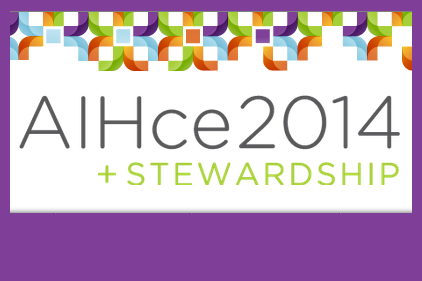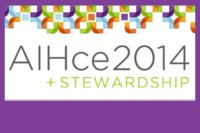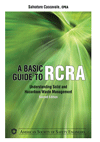 This article is re-posted with permission from AIHA and The Synergist magazine.
This article is re-posted with permission from AIHA and The Synergist magazine.
Jennifer Nash, executive director of the Regulatory Policy Program at Harvard Kennedy School, kicked off Stewardship 2014 by challenging attendees to consider what the phrase "product stewardship" truly means to them, both in theory and in practice. In her keynote address, Nash, who also serves as associate director of the Mossavar-Rahmani Center for Business and Government, urged product stewardship professionals gathered at the Grand Hyatt San Antonio to integrate stewardship more fully into their organizations and actions.
Stewardship 2014 was held concurrently with AIHce as a "conference within a conference" and brought together prominent experts and practitioners involved in minimizing the health, safety, environmental, and social impacts of products and packaging.
Three meanings
Nash explained that in her perspective, stewardship ultimately boils down to three meanings: ownership, accountability, and disclosure.
"You see yourself as an agent whose choices and actions can truly make a difference in the world," Nash said. "You accept the fact that others have the right and the responsibility to hold you to account and to praise or blame you for your actions. Finally, you understand that everything has to be based on facts and evidence — not on pronouncements of faith. You disclose as much as you can, and you disclose until it actually hurts.”
Importance of transparency
In talking about the disclosure aspect of product stewardship, Nash stressed the importance of a transparency policy program. She encouraged product stewards to develop information-based management practices and share with the public what they learn.
Nash went on to discuss how much human life has changed since over time. In the present day, chemicals are ubiquitous and can be found in products everywhere in the world. Those who manufacture and sell chemicals hold values that are fundamentally different from those of the public, she said. Product stewardship involves determining which chemicals could cause harm and removing them from products.
“In its essence, stewardship is about trusting brands to be safe and labels to be complete and factual," Nash said. "It’s a powerful concept that challenges all sectors to take responsibility for the products they make and consume.”
Confusing to manufacturers
Nash added that the word “stewardship” is often confusing to manufacturers. Since product stewardship involves using scientific methods and sound management practice to reduce risks to acceptable levels, a common misconception is that product stewardship is primarily a management problem.
“The reality is that we can all be product stewards,” Nash said. “Product stewardship is ultimately about responsibility and caring. There aren’t any rules to go by. You just have to use your brain, your heart, and your soul.”
Stewardship “ultimately means taking responsibility for our choices," Nash concluded. "When there is an absence of stewardship, we as product stewards are presented with a moral challenge. That challenge for us is, Are we going to accept the status quo or take steps toward a path of meaningful stewardship?”







